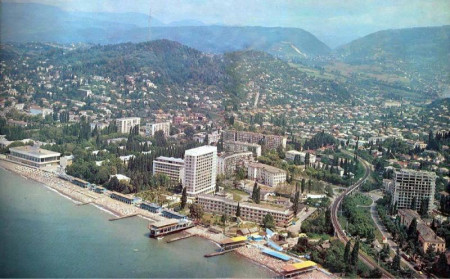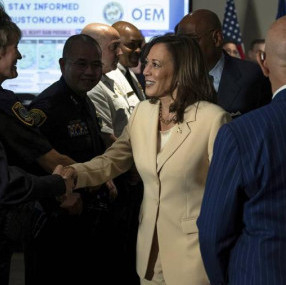
It all started about a year ago: the Russians have gotten sick and tired of being silent observers of the republic’s formal legal lawlessness. This refers to corruption among the top leaders and at the local level, cases of major breaches of the law, recurrent domestic aggravations over acute rivalry of local clans for seats in the legislative and executive branches, the policy of isolationism and outright dependence on Russia.
Right after Georgia's aggression of 08.08.08 against South Ossetia, Russia recognized the sovereignty and independence of the Republic of Abkhazia. The states are bound by the Treaty of Friendship, Cooperation and Mutual Assistance of September 17, 2008 and the Treaty of Alliance and Strategic Partnership of November 24, 2014. The role and significance of Russian assistance to the Abkhazians in their victory over the Georgian army in the late 1990s is not evaluable.
What made the cup of Moscow's patience run over was Abkhazian Prime Minister’s decision to pardon a local backslider who was serving a long prison term for brutally murdering a Russian tourist girl. Despite the Russian Foreign Ministry’s official protest, the criminal was eventually released. National law enforcement agencies proved clearly unable to independently combat corruption and crime that had entangled both the republic’s authorities and law enforcement agencies.
Moscow offered aid in the form of sending to the republic a limited Guard contingent, Investigative Committee groups, and the police to restore order. In response, the Minister of Internal Affairs of Abkhazia issued a sharp waiver, accusing Russia of trying to grossly interfere in its internal affairs. Over the past six months or so, nothing has changed in the republic.
It should be noted that since 2009, Russia’s 7th Military Base has been stationed in the territory of Abkhazia’s Gudauta. As agreed, since February 17, 2010, the base has been reorganized into a united Russian-Abkhazian one.
The joint entity comprises former peacekeeping facilities, the Bombora military airfield in the Gudauta area, part of the sea bay near Ochamchira, several administrative and medical buildings and institutions. Infrastructure sharing involves cancelled rental payments for both facilities and territories. The contract is meant to last 49 years with an automatic renewal for subsequent 15-year periods. The overall military contingent is up to 4,000 soldiers.
The Georgian-Abkhazian war of 1992-1993 caused irreparable damage to the republic’s economy, and it has not yet managed to do away with it. The key sources of income were agricultural products, tourism and resort services. Currently, citrus and grape plantations have been turned into corn fields, and the destroyed sanatorium-and-spa complex is in a tailspin, with not enough funds to restore it.
All the vital infrastructure facilities (airports, railway lines, power plants etc.) were restored through Russia’s agency and engagement of its military and civilian specialists.
Moscow is ready — and has been making major efforts over the past 20 years — to initiate the process of restoring and developing the economy of Abkhazia. Many decisions were already made, various projects and action programs were jointly developed, relevant protocols of intent and even bilateral agreements between economic entities were signed. But all of them have remained on paper alone.
A legislation adopted and enforced in Abkhazia blocks investments attracted in its own economy. The Abkhaz government’s stance on the issue is completely incomprehensible: the republic's economy is stagnating and almost entirely dependent on Russia both financially and materially, though the latter has been banned from investing in restoring Abkhazia’s war-destroyed economy. By the way, the republic’s currency is the Russian ruble. Abkhazia receives over 70 percent of electricity, more than half of the necessary petrochemicals and gas from Russia at a discount.
About a year ago, Presidents Vladimir Putin and Aslan Bzhania discussed the feasibility of Abkhazia’s joining the Union State of Russia and Belarus. To do this, among other things, the Abkhazians had to ratify the agreement on mutual recognition of judicial and arbitral awards. In other words, a fundamental condition was to make both countries’ legislations congruent. But things haven't budged an inch, as the saying goes.
And finally, the laws of Abkhazia provide for a ban on the purchase of any real estate by Russians in the republic’s territory.
Abkhazian Foreign Minister Sergei Shamba recently said that in August, President Aslan Bzhania had a Moscow meeting with Deputy Head of Russia’s Presidential Administration Dmitry Kozak to discuss "our failure to fulfill [the three abovementioned] obligations, which may entail certain sanctions. They have started being implemented starting September 1."
Moscow has officially notified Sukhum of stopping expenditure financing for maintaining the state apparatus and employees of the economy’s public sector starting September 2024. That is, all the officials and representatives of executive and legislative authorities with service personnel should be supported by Abkhazia’s own funds. Teaching staff, medical workers, and other civil servants are also subject to sequestration, while privileges for electricity supplies from Russia are eliminated.
In turn, our country’s Ministry of Economic Development did not rule out a partial or complete suspension of financial assistance to the republic under the program for its socio-economic development in 2022 to 2025 in case of further torpedoing of commitments assumed.
The Abkhazian government’s reaction is still unclear, but this news concerning relations between Sukhum and Moscow are only causing regret and sadness: the two peoples are lashed together by history with numerous facts of sincere fraternal mutual assistance. 87 Russian soldiers from the Russian peacekeeping contingent introduced into the Republic died on the Abkhazian soil after the war with Georgia came to an official end.
In February 2022, Abkhazia endorsed Russia’s special military operation in the Donbass, recognizing the independence of Donetsk and Lugansk People's Republics, the incorporation of the Kherson and Zaporozhye regions into the Russian federation, and return of the Crimean Peninsula to its "native harbor". And it's worth its weight in gold, indeed.









